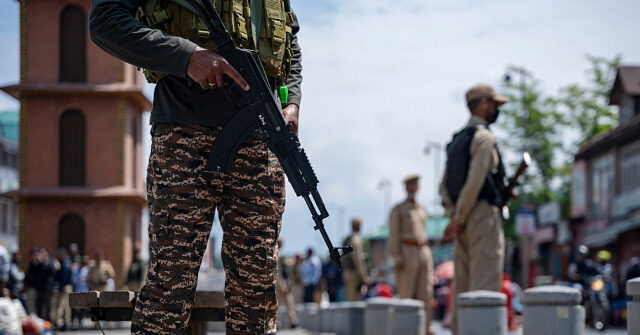India’s Ministry of Home Affairs (MHA) on Monday ordered several states, including the disputed Jammu and Kashmir region and areas close to the Pakistani border, to conduct civilian defense drills amid rising tensions with Pakistan.
India and Pakistan have yet to engage in open hostilities beyond some ineffectual small-arms fire exchanged by border guards, but each has imposed a raft of sanctions and penalties on the other following the deadly April 22 terrorist attack in Pahalgam, the Himalayan tourist haven of Indian-controlled Kashmir.
Indian Prime Minister Narendra Modi promised to pursue the perpetrators of the terror attack “to the ends of the earth” and make them “pay beyond their imagination” for gunning down dozens of tourists in Pahalgam.
Many Indians believe the Pakistani government either turned a blind eye to the terrorists responsible or actively colluded in the attack. Pakistan has denied any involvement with the terrorists and criticized India for suggesting it might be responsible for the bloodshed. Pakistani officials have repeatedly said they believe India is hours or days away from launching some form of military action.
On Monday, MHA instructed several Indian states to test civilian readiness for an attack by rehearsing evacuation plans, checking communication systems, testing their air raid warning sirens, teaching emergency procedures to civilian residents, and deploying camouflage around vital installations.
The districts ordered to conduct these drills essentially include the capital city of New Delhi plus everything between it and the Pakistani border, including the districts India controls in Jammu and Kashmir. Longtime residents of the area said they have not seen such civil defense exercises since the 1971 India-Pakistan war.
“In the current geo-political scenario, new and complex threats/challenges have emerged, hence, it would be prudent that optimum civil defense preparedness in the states/UTs is maintained at all times,” the order from MHA said. UT stands for “union territories,” which are districts directly controlled by the national government headquartered in New Delhi.
Indian officials said “loopholes to be rectified” were quickly identified once the civilian defense drills got underway.
Meanwhile, Pakistan conducted a missile test on Monday, its second in three days. The weapon tested on Monday was a Fatah-series surface-to-surface missile with a range of about 75 miles. The previous test involved an Abdali-class ballistic missile with almost four times the range.
Pakistani Prime Minister Shehbaz Sharif said the missile tests demonstrated his army’s “full preparedness for national defense.”
“The successful training launch clearly shows that Pakistan’s defense is in strong hands,” he said.
India took one of its most aggressive non-military steps to date on Friday when it asked the International Monetary Fund (IMF) to review its loans to Pakistan. The IMF granted a $7 billion bailout to Pakistan last year.
An analysis from Moody’s predicted the shutdown of trade and travel between India and Pakistan could cause significant damage to Pakistan’s economy and “hamper the government’s ongoing fiscal consolidation,” while India would suffer relatively little damage.
The U.N. Security Council (UNSC) gave Pakistan a much less friendly hearing than Islamabad wanted on Monday, asking tough questions about the Lashkar-e-Taiba terrorist group blamed by India for perpetrating the Pahalgam attack. Security Council members rejected Pakistan’s suggestion that the attack might have been a “false flag” operation carried out by someone else.
“Targeting civilians is unacceptable — and those responsible must be brought to justice through credible and lawful means,” U.N. Secretary-General Antonio Guterres said at a press conference on Monday.
Guterres called for “maximum restraint” and called on both India and Pakistan to de-escalate, saying it was “essential, especially at this critical hour, to avoid a military confrontation that could easily spin out of control.”
“Make no mistake, a military solution is no solution, and I offer my good offices to both governments in the service of peace,” Guterres said.
“The United Nations stands ready to support any initiative that promotes de-escalation, diplomacy, and the renewed commitment to peace,” he said.
Read the full article here


